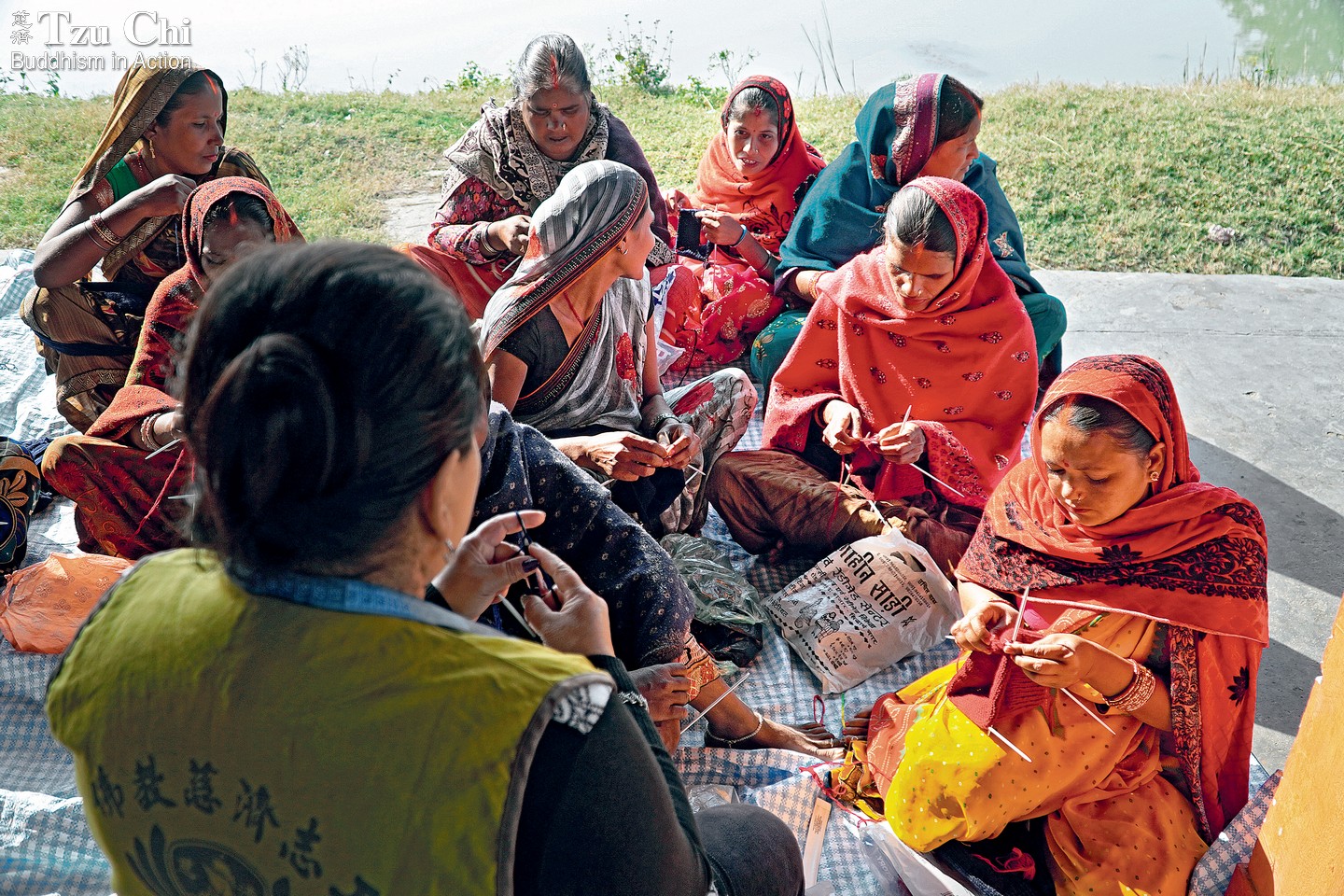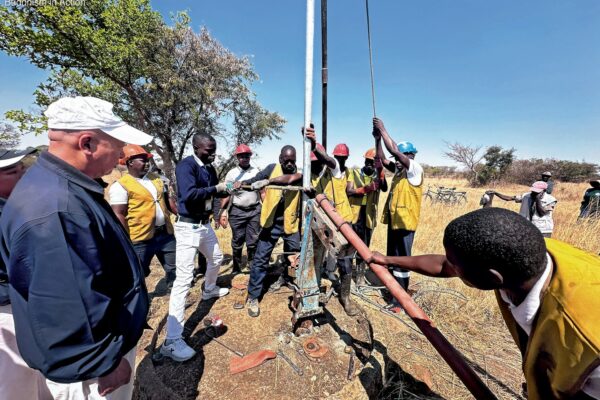Information provided by Goh Lam Kia
Translated by Wu Hsiao-ting
Photo by Raj Kumar

“I’ve woven five hats and earned 1,500 rupees [US$11.28] during this time,” said Sangita Dhobi, a resident of Manaora village in Lumbini, Nepal. “I immediately used my earnings to pay off my children’s outstanding school fees.” Sangita had joined a Tzu Chi workshop for knitting hats to supplement her family’s income. Her family of eight barely managed to get by on her earnings from the crops on a leased plot of land and her husband’s unpredictable income from odd jobs. When times were toughest, their meals consisted only of rice with salt. Regardless of the hardships, Sangita remained committed to ensuring her children’s education, seeing it as the key to breaking the cycle of poverty for her family. “I’m grateful for this opportunity to earn some extra money with my own hands,” she said.
Tzu Chi employs local women to knit hats, providing them with yarn and training. After passing quality inspections, each hat fetches the women 300 rupees (US$2.25), surpassing the 30 rupees people could earn in Kathmandu, Nepal’s capital. This not only provides the women with income but has also resulted in the distribution of knitted hats to needy households and earthquake victims in western Nepal. In addition to Khambhe and Manaora villages, there is also a group of women knitting hats at the Tzu Chi Lumbini office. From October 2023 to January 2024, over a thousand hats were crafted for charitable distribution.
Since the inception of this initiative, participating women have tirelessly pursued their craft. Upon entering the villages, one can see small groups of women sitting, squatting, or standing, wholly engrossed in knitting. When it comes time to collect their earnings, they eagerly step forward to sign their names or affix their thumbprints to their earning statements, joyfully counting the notes they get in return. Some even take out small bills from the stack and drop them into a coin bank to help others.
Urmila, another participant, shared that she gives her wages to her husband for the purchase of gasoline and fertilizers. She explained that gasoline powers the water pump for irrigation, while fertilizers facilitate the growth of wheat seedlings. “We now no longer think that poor people like us can only beg for charity from others,” she said.



